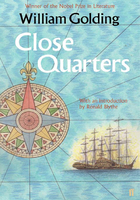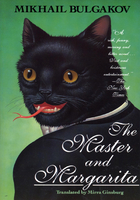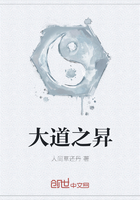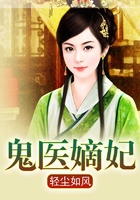So, as Sai waited at the gate, the cook had come bandy-legged up the path with a lantern in his hand, blowing on a whistle to warn away jackals, the two cobras, and the local thief, Gobbo, who robbed all the residents of Kalimpong in rotation and had a brother in the police to protect him.
"Have you come from England?" the cook asked Sai, unlocking the gate with its fat lock and chain, although anyone could easily climb over the bank or come up the ravine.
She shook her head.
"America? No problem there were water or electricity," he said. Awe swelled his words, made them tick smug and fat as first-world money.
"No," she said.
"No? No?" His disappointment was severe. "From Foreign." No question mark. Reiterating basic unquestionable fact. Nodding his head as if she'd said it, not he.
"No. From Dehra Dun."
"Dehra Dun!" Devastated, "Kamaal hai," said the cook. "Here we have made so much fuss, thought you're coming from far away, and you've been in Dehra Dun all along. Why didn't you come before?
"Well," said the cook when she did not answer, "Where are your parents?"
"They're dead," she said.
"Dead." He dropped the lantern and the flame went out. "Baap re! I'm never told anything. What will happen to you, poor child?" he said with pity and hopelessness. "Where did they die?" With the lantern flame out, the scene became suffused with mysterious moonlight.
"Russia."
"Russia! But there aren't any jobs there." Words again became deflated currency, third-world, bad-luck money. "What were they doing?"
"My father was a space pilot."
"Space pilot, never heard of such a thing… ." He looked at her suspiciously. There was something wrong with this girl, he could tell, but here she was. "Just have to stay now," he mulled. "Nothing else for you … so sad … too bad… ." Children often made up stories or were told them so as to mask a terrible truth.
The cook and the driver struggled with the trunk as the driveway was too overgrown with weeds to accommodate a car; just a slim path had been stamped through.
The cook turned back: "How did they die?"
Somewhere above, there was the sound of an alarmed bird, of immense wings starting up like a propeller.
It had been a peaceful afternoon in Moscow, and Mr. and Mrs. Mistry were crossing the square to the Society for Interplanetary Travel. Here, Sai's father had been resident ever since he'd been picked from the Indian Air Force as a possible candidate for the Intercosmos Program. These were the last days of Indo-USSR romance and already there was a whiff of dried bouquet in the air, in the exchanges between the scientists that segued easily into tears and nostalgia for the red-rose years of courtship between the nations.
Mr. and Mrs. Mistry had grown up during those heady times when the affection had been cemented by weapons sales, sporting competitions, visiting dance troups, and illustrated books that introduced a generation of Indian schoolchildren to Baba Yaga, who lived in her house on chicken feet in the prehistoric dark of a Russian forest; to the troubles of Prince Ivan and Princess Ivanka before they resided happily ever after in an onion-domed palace.
The couple had met in a public park in Delhi. Mrs. Mistry, then a college student, would go from the ladies' dorm to study and to dry her hair in the shade and quiet of a neem tree where the matron had authorized her girls to go. Mr. Mistry had come jogging by, already in the air force, strong and tall, with a trim mustache, and the jogger found this student so astonishingly pretty, with an expression half tart, half sweet, that he stopped to stare. They became acquainted in this grassy acre, cows tethered to enormous rusty lawn mowers slowly grinding back and forth before a crumbling Mughal tomb. Before a year was up, in the deep cool center of the tomb, golden indirect light passing from alcove to hushed alcove, duskier, muskier through the carved panels each casting the light in a different lace pattern—flowers, stars—upon the floor, Mr. Mistry proposed. She thought quickly. This romance had allowed her to escape the sadness of her past and the tediousness of her current girlish life. There is a time when everyone wishes to be an adult, and she said yes. The pilot and the student, the Zoroastrian and the Hindu, emerged from the tomb of the Mughal prince knowing that nobody other than themselves would be impressed by their great secular romance. Still, they considered themselves lucky to have found each other, each one empty with the same loneliness, each one fascinating as a foreigner to the other, but both educated with an eye to the West, and so they could sing together quite tunefully while strumming a guitar. They felt free and brave, part of a modern nation in a modern world.
As early as 1955, Khrushchev had visited Kashmir and declared it forever part of India, and more recently, the Bolshoi had performed Swan Lake before a Delhi audience dressed for the occasion in their finest silk saris and largest jewels.
And, of course, these were the early days of space exploration. A dog named Laika had been whooshed up in Sputnik II. In 1961, a chimp named Ham had made the journey. After him, in the same year, Yuri Gagarin. As the years lumbered on, not only Americans and Soviets, dogs and chimps, but a Vietnamese, a Mongolian, a Cuban, a woman, and a black man went up. Satellites and shuttles were orbiting the earth and the moon; they had landed on Mars, been launched toward Venus, and had completed a flyby of Saturn. At this time, a visiting Soviet team of aeronautical and aviation experts who had been instructed by their government to find likely candidates to send to space had arrived in India. Visiting an air force facility in the nation's capital, their attention had been caught by Mr. Mistry, not merely because of his competence but also because of the steely determination that shone from his eyes.
He had joined a few other candidates in Moscow, and six-year-old Sai had been hastily entrusted to the same convent her mother had attended.
The competition was fierce. Just as Mr. Mistry was confessing to his wife his certainty that he would be chosen over his colleagues to become the very first Indian beyond the control of gravity, the fates decided otherwise, and instead of blasting through the stratosphere, in this life, in this skin, to see the world as the gods might, he was delivered to another vision of the beyond when he and his wife were crushed by local bus wheels, weighted by thirty indomitable ladies from the provinces who had speeded two days to barter and sell their wares in the market.
Thus they had died under the wheels of foreigners, amid crates of babushka nesting dolls. If their last thoughts were of their daughter in St. Augustine's, she would never know.
Moscow was not part of the convent curriculum. Sai imagined a sullen bulky architecture, heavyset, solid-muscled, bulldog-jowled, in Soviet shades of gray, under gray Soviet skies, all around gray Soviet peoples eating gray Soviet foods. A masculine city, without frill or weakness, without crenellation, without a risky angle. An uncontrollable spill of scarlet now in this scene, unspooling.
"Very sorry," said Sister Caroline, "very sorry to hear the news, Sai. You must have courage."
"I'm an orphan," Sai whispered to herself, resting in the infirmary. "My parents are dead. I am an orphan."
She hated the convent, but there had never been anything else she could remember.
"Dear Sai," her mother would write, "well, another winter coming up and we have brought out the heavy woolens. Met Mr. and Mrs. Sharma for bridge and your papa cheated as usual. We enjoy eating herring, a pungent fish you must sample one day."
She responded during the supervised letter writing sessions:
"Dear Mummy and Papa, how are you? I am fine. It is very hot here. Yesterday we had our history exam and Arlene Macedo cheated as usual."
But the letters seemed like book exercises. Sai had not seen her parents in two whole years, and the emotional immediacy of their existence had long vanished. She tried to cry, but she couldn't.
In the conference room beneath a Jesus in a dhoti pinned onto two varnished sticks, the nuns conferred anxiously. This month there would be no Mistry bank draft in the convent coffers, no mandatory donations to the toilet renovation fund and bus fund, to fete days and feast days.
"Poor thing, but what can we do?" The nuns tsk-tsked because they knew Sai was a special problem. The older nuns remembered her mother and the fact that the judge paid for her keep but never visited. There were other parts of the tale that none of them would be able to piece together, of course, for some of the narrative had been lost, some of it had been purposely forgotten. All they knew of Sai's father was that he had been brought up in a Zoroastrian charity for orphans, and that he had been helped along by a generous donor from school to college and then finally into the air force. When Sai's parents eloped, the family in Gujarat, feeling disgraced, disowned her mother.
In a country so full of relatives, Sai suffered a dearth.
There was only a single listing in the register under "Please contact in case of emergency." It was the name of Sai's grandfather, the same man who had once paid the school fees:
Name: Justice Jemubhai Patel
Relation: Maternal Grandfather
Position: Chief Justice (Retd.)
Religion: Hindu
Caste: Patidar
Sai had never met this grandfather who, in 1957, had been introduced to the Scotsman who had built Cho Oyu and was now on his way back to Aberdeen.
"It is very isolated but the land has potential," the Scotsman had said, "quinine, sericulture, cardamom, orchids." The judge was not interested in agricultural possibilities of the land but went to see it, trusting the man's word—the famous word of a gentleman—despite all that had passed. He rode up on horseback, pushed open the door into that spare space lit with a monastic light, the quality of which altered with the sunlight outside. He had felt he was entering a sensibility rather than a house. The floor was dark, almost black, wide planked; the ceiling resembled the rib cage of a whale, marks of an ax still in the timber. A fireplace made of silvery river stone sparkled like sand. Lush ferns butted into the windows, stiff seams of foliage felted with spores, curly nubs pelted with bronze fuzz. He knew he could become aware here of depth, width, height, and of a more elusive dimension. Outside, passionately colored birds swooped and whistled, and the Himalayas rose layer upon layer until those gleaming peaks proved a man to be so small that it made sense to give it all up, empty it all out. The judge could live here, in this shell, this skull, with the solace of being a foreigner in his own country, for this time he would not learn the language.
He never went back to court.
"Good-bye," said Sai, to the perversities of the convent, the sweet sweety pastel angels and the bloodied Christ, presented together in disturbing contrast. Good-bye to the uniforms so heavy for a little girl, manly shouldered blazer and tie, black cow-hoof shoes. Goodbye to her friend, Arlene Macedo, the only other student with an unconventional background. Arlene's father, Arlene claimed, was a Portuguese sailor who came and left. Not for the sea, whispered the other girls, but for a Chinese hairdresser in Claridge's Hotel in Delhi. Good-bye to four years of learning the weight of humiliation and fear, the art of subterfuge, of being uncovered by black-habited detectives and trembling before the rule of law that treated ordinary everyday slips and confusions with the seriousness of first-degree crime. Good-bye to:
a. standing in the rubbish bin with dunce cap on
b. getting heatstroke in the sun while on one leg and with hands up in the air
c. announcing your sins at the morning assembly
d. getting paddled red black blue and turmeric
"Shameless girl," Sister Caroline had told Sai, homeworkless, one day, and delivered her bottom bright as a baboon's, so that she without shame quickly acquired some.
The system might be obsessed with purity, but it excelled in defining the flavor of sin. There was a titillation to unearthing the forces of guilt and desire, needling and prodding the results. This Sai had learned. This underneath, and on top a flat creed: cake was better than laddoos, fork spoon knife better than hands, sipping the blood of Christ and consuming a wafer of his body was more civilized than garlanding a phallic symbol with marigolds. English was better than Hindi.
Any sense that Sai was taught had fallen between the contradictions, and the contradictions themselves had been absorbed. "Lochinvar" and Tagore, economics and moral science, highland fling in tartan and Punjabi harvest dance in dhotis, national anthem in Bengali and an impenetrable Latin motto emblazoned on banderoles across their blazer pockets and also on an arch over the entrance: Pisci tisci episculum basculum. Something of the sort.
She passed beneath this motto for the last time, accompanied by a visiting nun who was studying convent finance systems, on her way now to Darjeeling. Out of the window, from Dehra Dun to Delhi, Delhi to Siliguri, they viewed a panorama of village life and India looked as old as ever. Women walked by with firewood on their heads, too poor for blouses under their saris. "Shame shame, I know your name," said the nun, feeling jolly. Then she felt less jolly. It was early in the morning and the railway tracks were lined with rows of bare bottoms. Close up, they could see dozens of people defecating onto the tracks, rinsing their bottoms with water from a can. "Dirty people," she said, "poverty is no excuse, no it isn't, no don't try and tell me that. Why must they do such things here?"
"Because of the drop," said an earnest bespectacled scholar seated next to her, "the ground drops to the railway track, so it is a good place."
The nun didn't answer. And to the people who defecated, those on the train were so beside the point—not even the same species—that they didn't care if passersby saw their straining rears any more than if a sparrow were witness to them.
On and on.
Sai quiet… feeling her fate awaiting her. She could sense Cho Oyu.
"Don't worry, dear," said the nun.
Sai did not reply and the nun began to feel annoyed.
They transferred to a taxi and traversed through a wetter climate, a rusty green landscape, creaking and bobbing in the wind. They drove past tea stalls on stilts, chickens being sold in round cane baskets, and Durga Puja goddesses being constructed in shacks. They passed paddy fields and warehouses that looked decrepit but bore the names of famous tea companies: Rungli Rungliot, Ghoom, Goenkas.
"Don't you sit about feeling sorry for yourself. You don't think God sulked, do you? With all he had to do?"
Suddenly to the right, the Teesta River came leaping at them between white banks of sand. Space and sun crashed through the window. Reflections magnified and echoed the light, the river, each adding angles and colors to the other, and Sai became aware of the enormous space she was entering.
By the riverbank, wild water racing by, the late evening sun in polka dots through the trees, they parted company. To the east was Kalimpong, barely managing to stay on the saddle between the Deolo and the Ringkingpong hills. To the west was Darjeeling, skidding down the Singalila Mountains. The nun tried to offer a final counsel, but her voice was drowned out by the river roar so she pinched Sai's cheek in farewell. Off she went in a Sisters of Cluny jeep, six thousand feet up into tea growing country and to a town that was black and slimy, mushrooming with clusters of convents in the dripping fog.
Night fell quickly after the sun went down. With the car tilted back so its nose pointed to the sky, they corkscrewed on—the slightest wrong move and they would tumble. Death whispered into Sai's ear, life leaped in her pulse, her heart plummeted, up they twirled. There was not a streetlight anywhere in Kalimpong, and the lamps in houses were so dim you saw them only as you passed; they came up suddenly and disappeared immediately behind. The people who walked by in the black had neither torches nor lanterns, and the headlights caught them stepping off the road as the car passed. The driver turned from the tar road onto a dirt one, and finally the car stopped in the middle of the wilderness at a gate suspended between stone pillars. The sound of the engine faded; the headlights went dead. There was only the forest making ssss tseu ts ts seuuu sounds.















